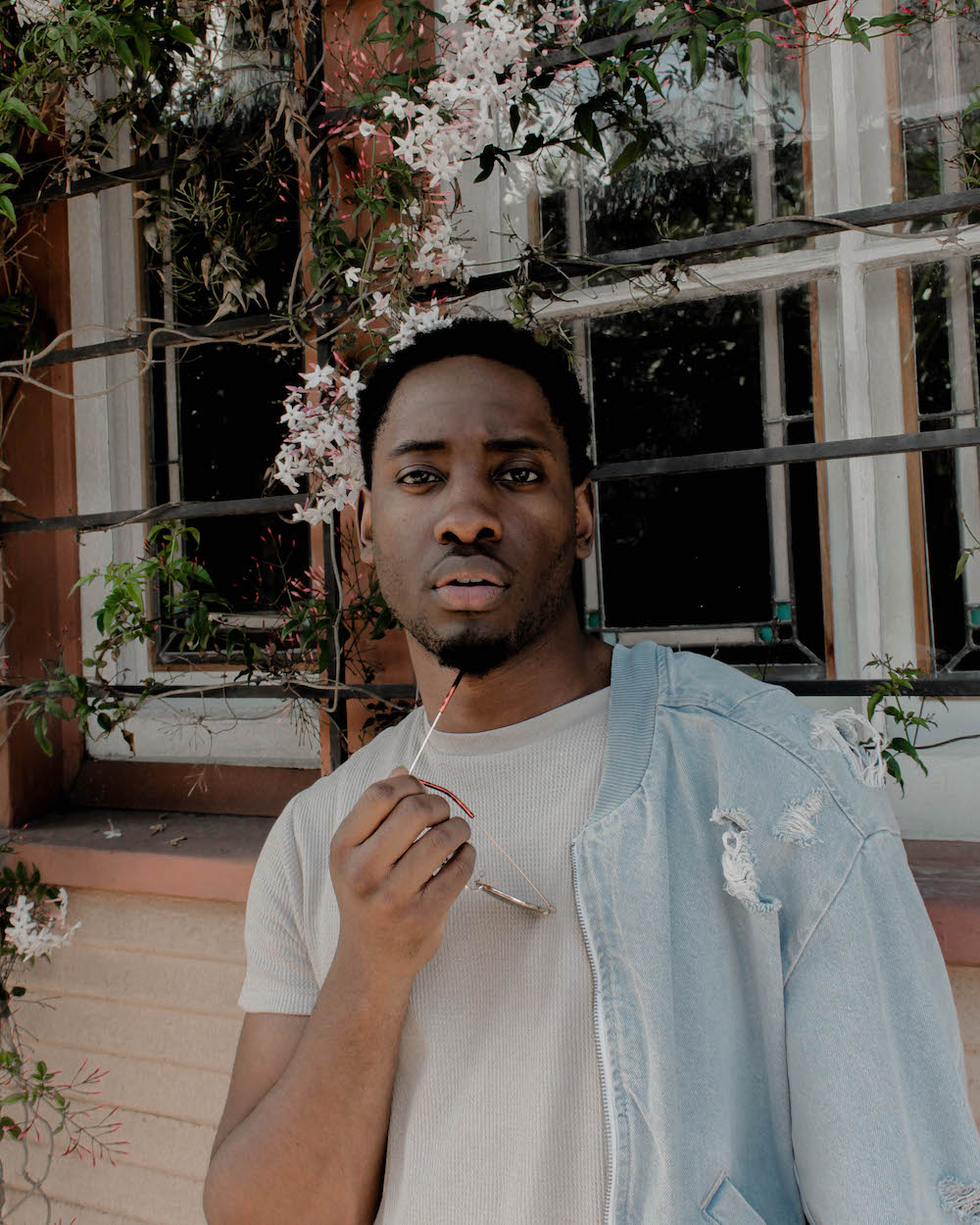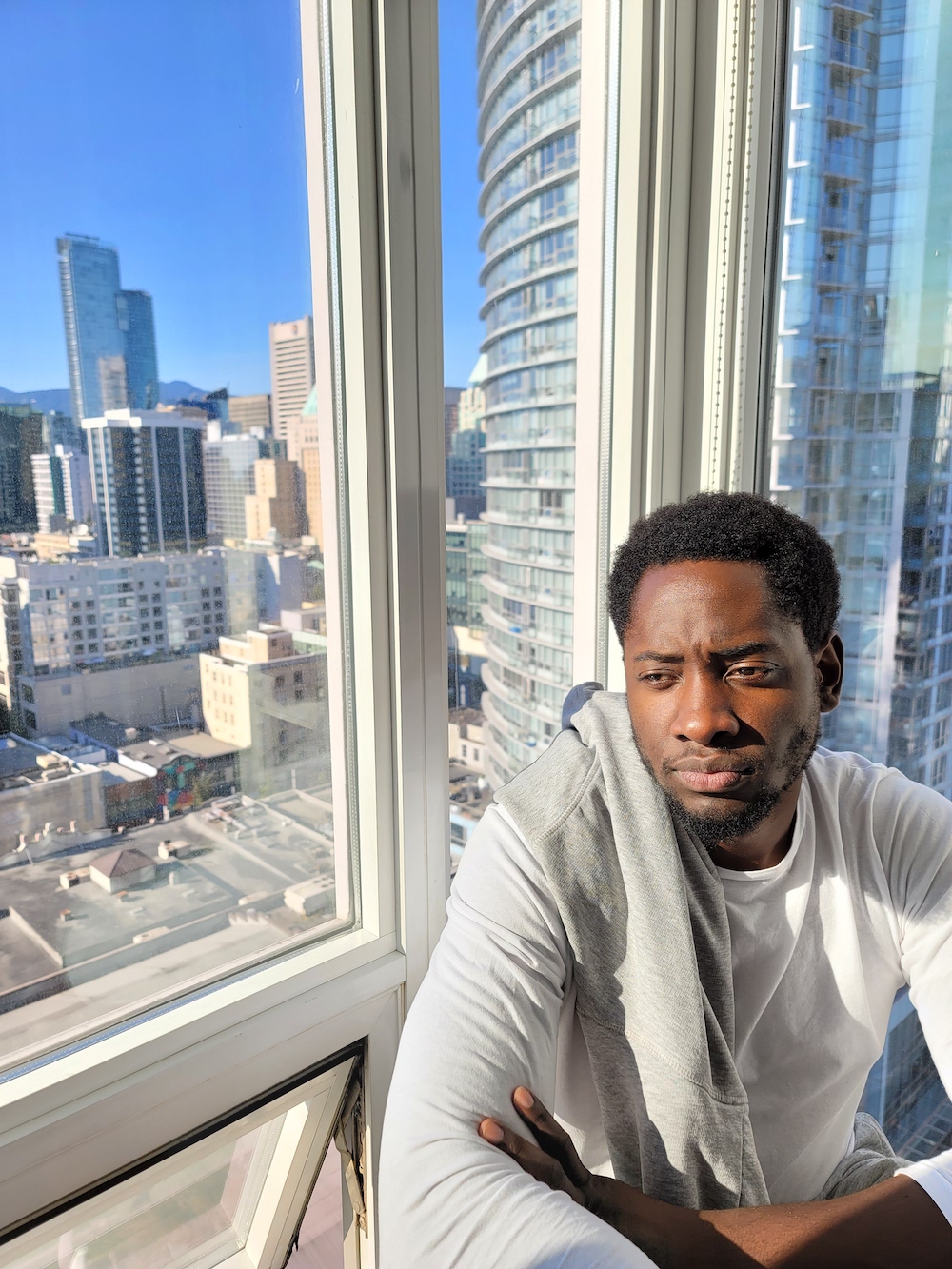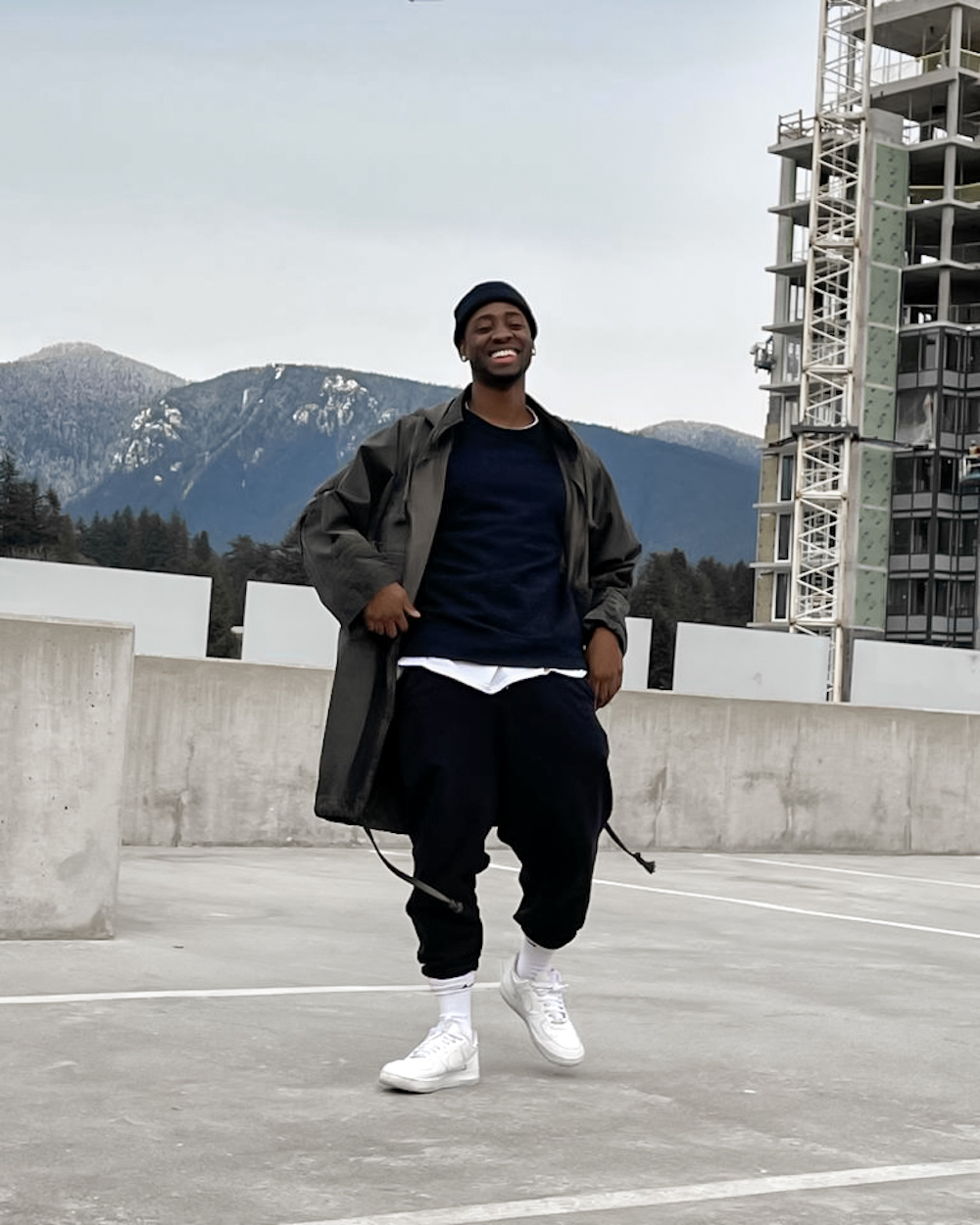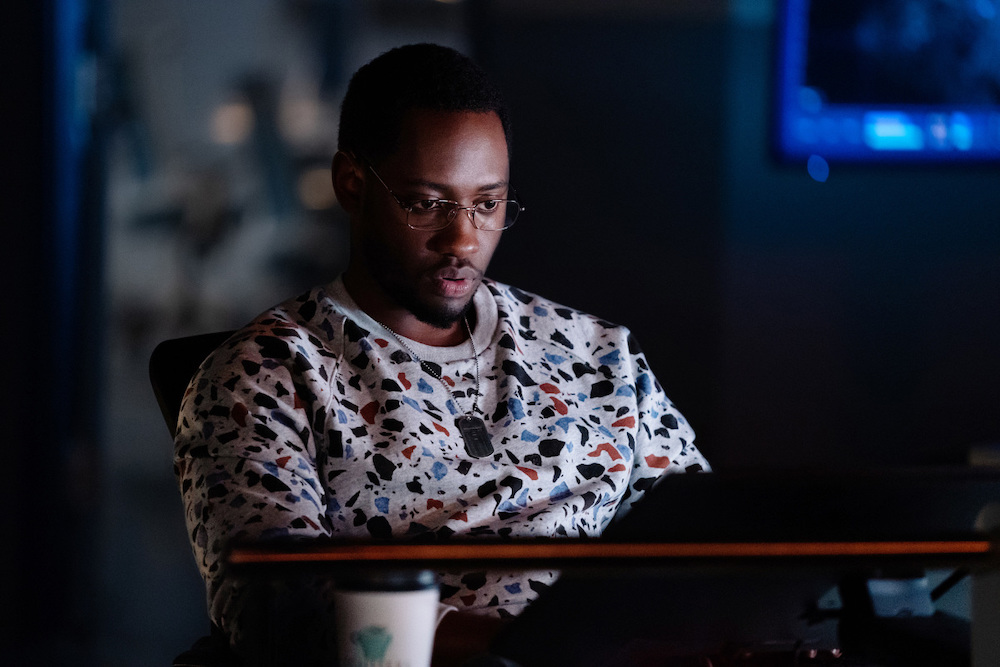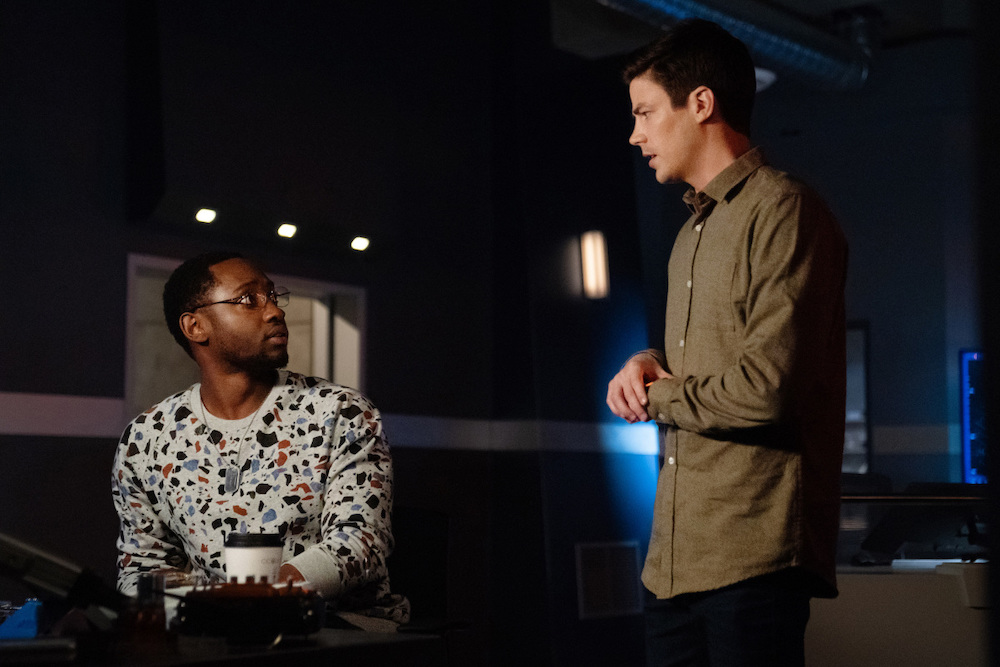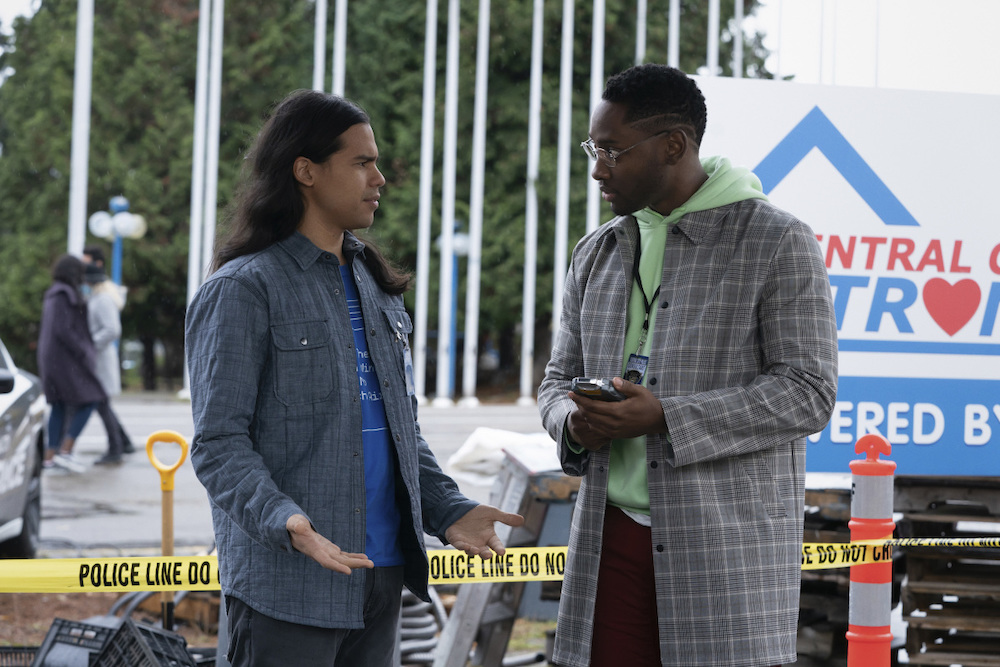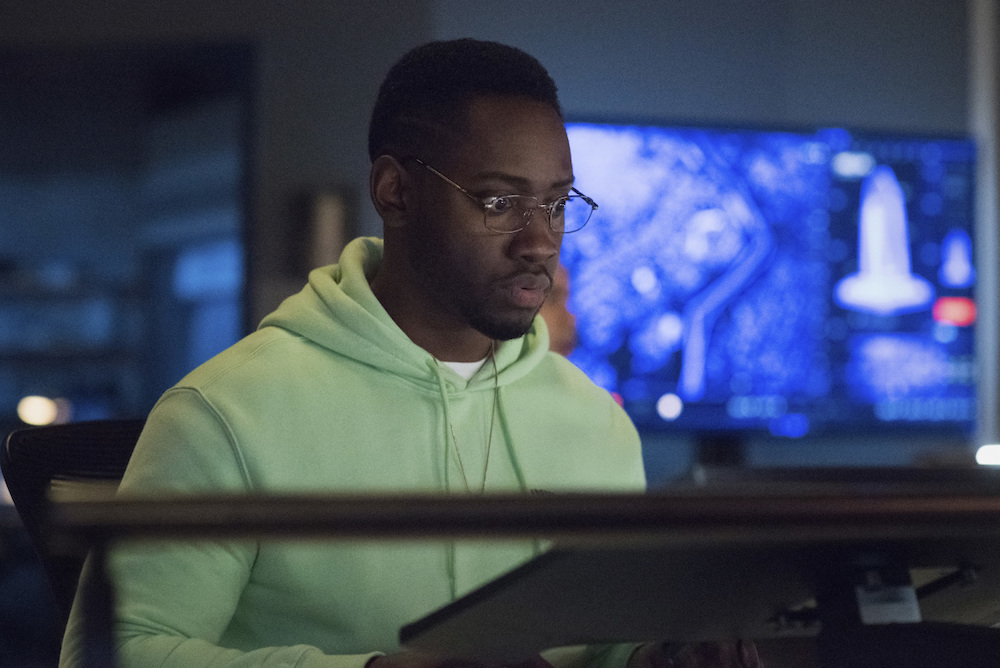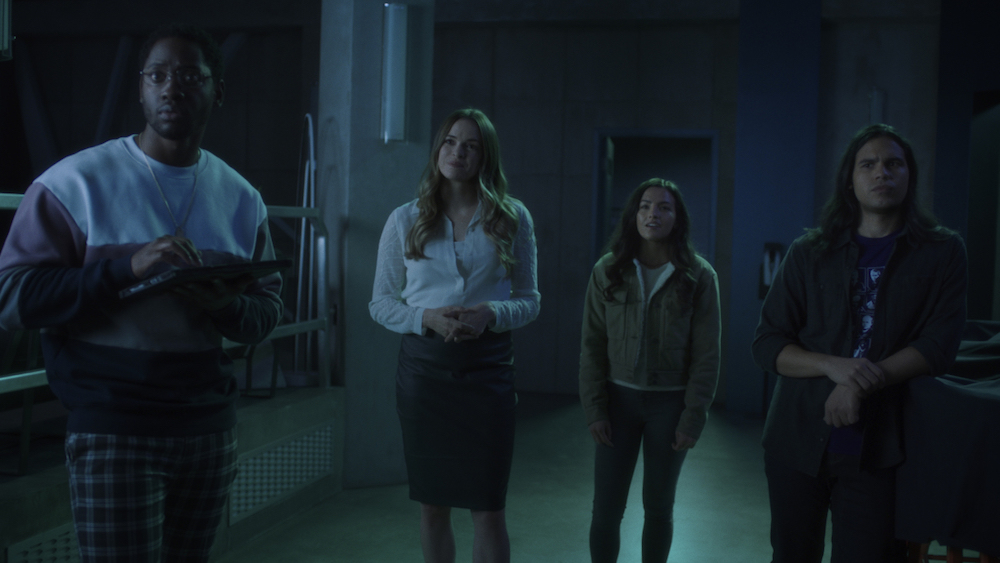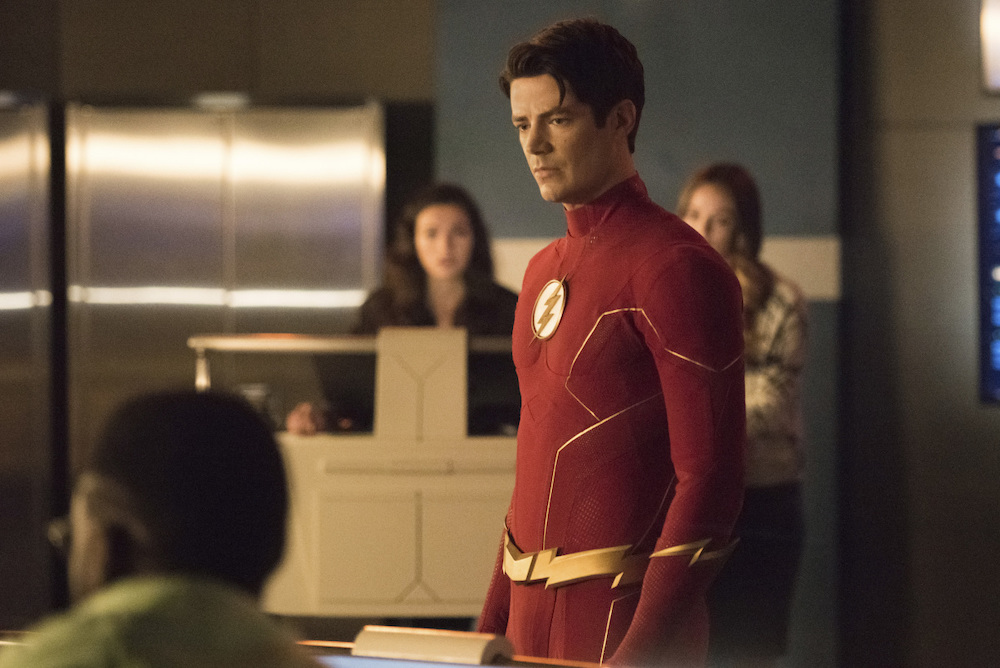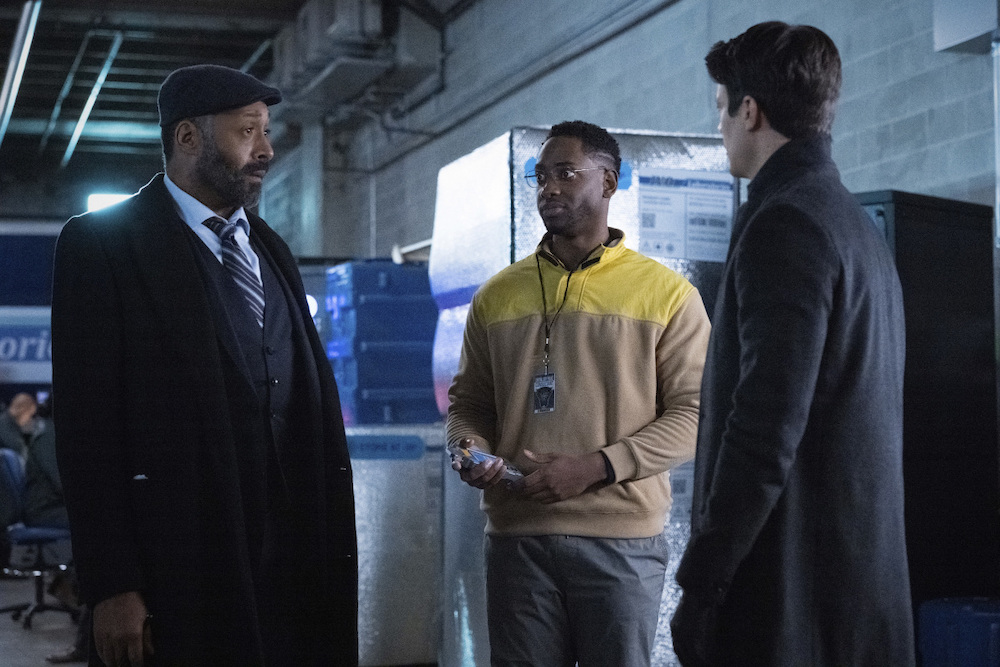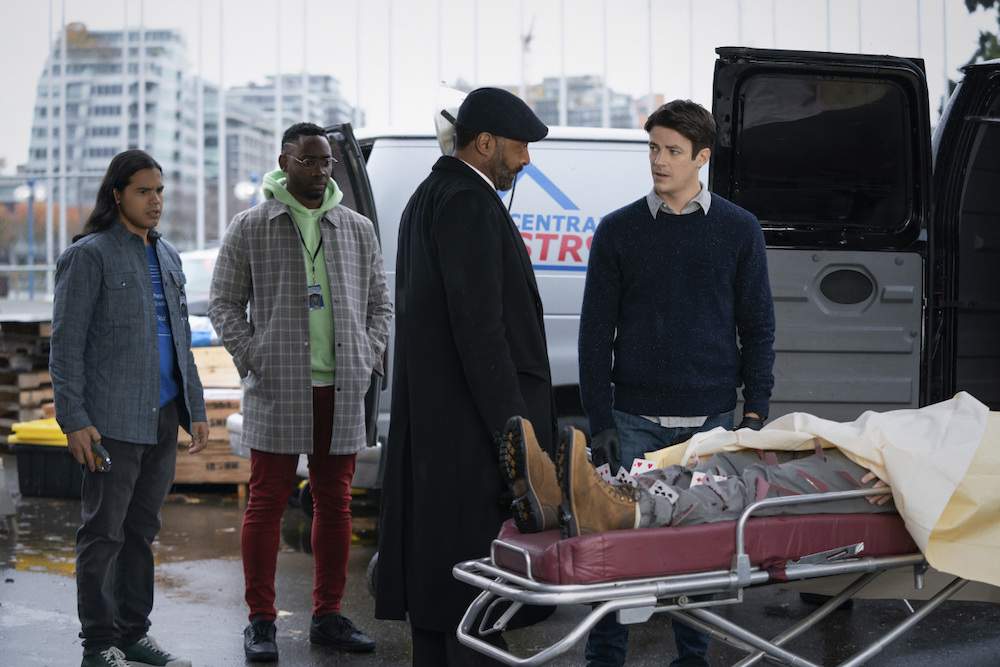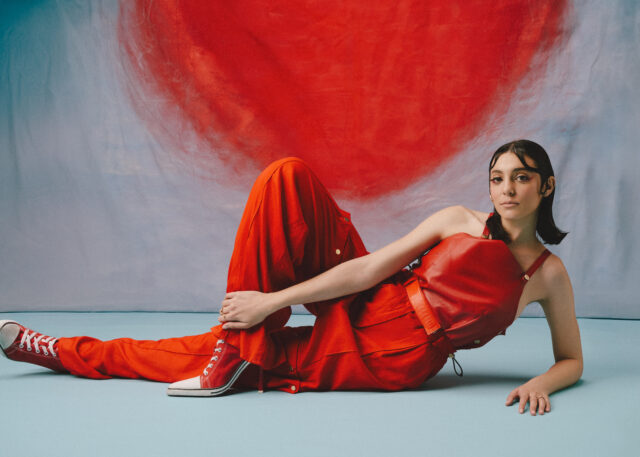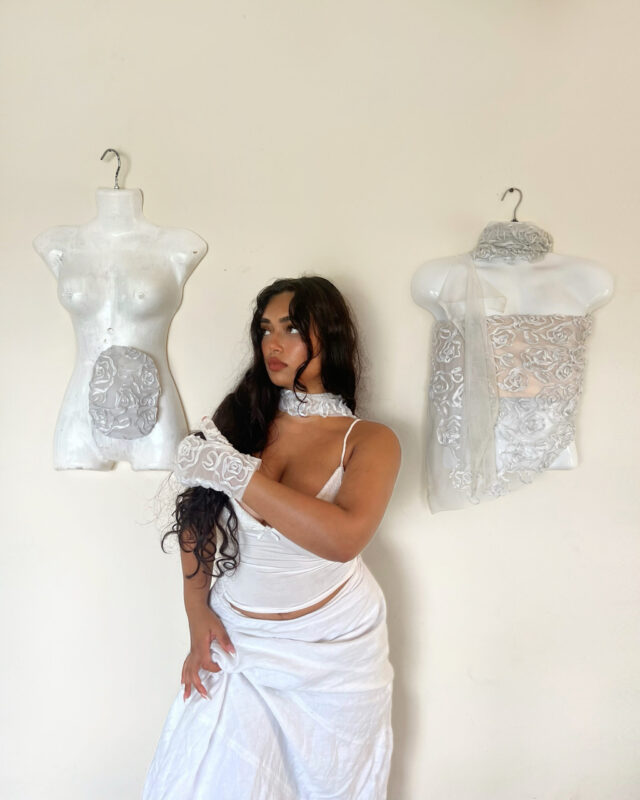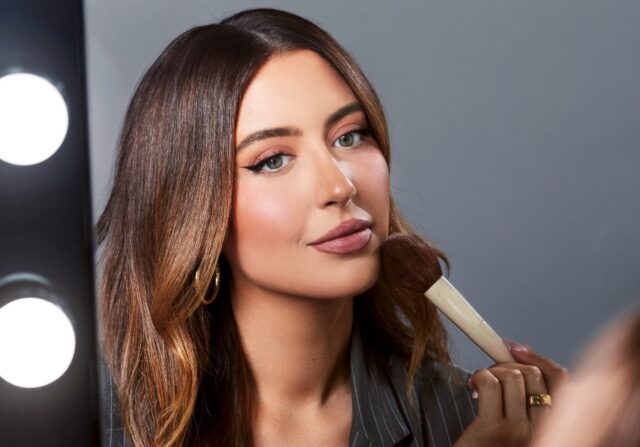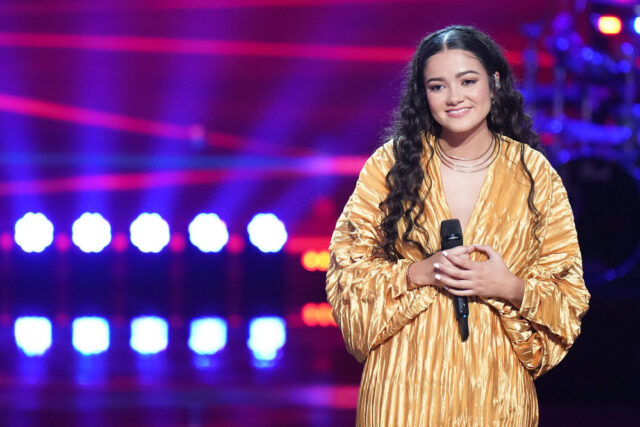INTERVIEW: Brandon McKnight Shares on Life, His Love of Acting, What Inspires Him, Self-Love, and All Things ‘The Flash’
Canadian-born actor Brandon McKnight stars in The CW’s The Flash as the brilliant alien obsessed Chester P. Runk. Landing on the series in 2019, Brandon is now a series regular. Brandon made his feature film debut in the Academy Award-winning 2017 film, The Shape of Water. He also appeared in I’ll Take Your Dead, Nose to Tail, and You Brought the Sunshine, produced by Queen Latifah, Mary J. Blige, and Missy Elliot.
The Flash story follows Barry Allen, played by Grant Gustin, a C.S.I. in the Central City Police Department who was struck by lightning, giving him super-speed, making him the fastest man alive.
Season 6 ended with a bang as The Mirror Master (Efrat Dor) took over Central City, and The Flash was tasked with finding a way to stop the madness. The brilliant tech-geek Chester P. Runk was saved from becoming a black hole and joins Team Flash as well. Recently we saw Chester go back in time to his hometown of Masonville in the ’90s, and we are still keeping our eye out to see if he runs into any aliens as the season unfolds. The show has currently been on a three-week hiatus, so you’ll have to wait and see season 7, episode 8, “The People Vs. Killer Frost,” on Tuesday, May 4.
Brandon sat down with Glitter Magazine to discuss how he got his start in and love of acting (which is super cute and unique, by the way), auditioning and balancing life, how he uses his voice for change, self-love, his role as Chester, and all things The Flash. Read on for more.
GLITTER: When did you first know that you had a love for acting?
BRANDON: I think I was 12. We did like a little middle school play; I think that was like sixth or seventh grade. We did all the fairy godmother characters, and we called it The Granny Awards; it was like all the fairy tale characters were coming in to collect, like, awards on their stories and stuff like that. I played little pig number two. It was two of my friends that played little pig number one and little pig number three. I think we were getting an award for engineering or something like that.
I remember we made a plan like, “OK, when we go out to accept our award, we’re going to dance. Brandon, you do a moonwalk. Mike, you do this and then Hums, you do that, and then we’re like, all right, cool. That’s what we’re going to do.” We did that to accept our awards, and the entire audience started laughing and were like they loved it. There was something about that feeling of having people respond to something that I did. At the time, I had no idea what it was. I didn’t even know you could do this as a job, but that really changed it for me. And then we did another where we did a live-action, Grease. And then the same thing; I was playing just like a little side character. Every time I came out on stage, people were laughing, people having a good time, and then being there and playing pretend with my friends like we were. Then we had a few encore performances as people brought their parents to watch the show. I was like, “This is amazing.” So I think that’s when the seed was planted. It didn’t blossom until years later. But I think that’s where it started for me.
GLITTER: What would you say was your first big break?
BRANDON: The Flash. (laughing) I would say The Flash. I’ve been extremely lucky to work on some pretty cool projects. I worked on The Shape of Water with Guillermo del Toro, where I also worked with Octavia Spencer, Sally Hawkins, and Michael Shannon. I wouldn’t call that a break, but that was a big learning lesson in terms of what acting was and what it looks like at the highest level, which was incredibly eye-opening. Thank God for that experience. I worked on another show that came out on Quibi called The Most Dangerous Game. I worked with Liam Hemsworth and Christoph Waltz, which was really cool. But I think The Flash would be my most significant break. It was the first time I’ve gotten to play a character for more than a couple of days at a time and go to work, week after week, seeing the same people and get to spend this much time with the characters. So I would say this is the biggest thing.
GLITTER: What can you tell us about the current season of The Flash without giving too much away?
BRANDON: It is going to be a very emotional season. It’s definitely going to be the biggest season. Eric Wallace is doing a lot. He’s bringing in some big concepts and some big ideas into the show. And, yes, it’s just going to be huge. It’s going to be big, things that you would never expect. Very expensive. It’s going to be a ball. He’s splitting the season into two graphic novels. It’s just going to be really, really big. Don’t believe anything you see; you won’t know what’s coming. People need to strap in for the ride and look forward to that.
GLITTER: What is Chester P. Runk’s greatest superpower?
BRANDON: Well, first of all, the way I like to describe Chester is that he’s a big fan of the show, which just so happens to be part of the show. I mean, he’s a big fan of superheroes who just so happens to be friends with superheroes. But one thing Eric Wallace told me that has always stuck with me, and I always think about it first and foremost when I think about Chester, is that he is the most empathetic person in any room that he walks in and doesn’t know it. He’s also the most intelligent person in every room he walks in, and he doesn’t know it. His intelligence is met with this immense level of humility and humbleness that he carries. He isn’t aware of just how smart he is and how much of an impact he can bring. So I’d say at the core that’s who Chester is.
GLITTER: We know Chester is a huge fan of aliens. Do you think any will show up this season?
BRANDON: I hope so. (laughing) I really hope so because, yeah, that’s kind of where Chester started the first time we see him, he’s trying to contact aliens. I hope that that’s something that we play into a lot more going forward and discover more about what that is and where that comes from in the first place. How many times has he tried to contact aliens? What other inventions has he made? Has that helped him meet aliens and see aliens? I think that exploring all of that would be incredible. So, yeah, hopefully, I hope so.
GLITTER: What is your most memorable time on set?
BRANDON: Oh, wow, there’s so many now. Wow. I’ve got to sift through. You know what, I’m just going to say? I’m going to say this stuff with Carlos for 7×06 with this recent episode. First of all, getting to work with Jeff Bird, who is a Black director, and getting to dive into all the things of who Chester is and finding out his backstory and stuff like that, was amazing. I think working with Carlos is a ball. Actually, I think I’m going to change my answer. I think it was…It was shooting episode… it would be 7×01 now. Seeing the dynamic between Carlos Valdez, Tom Cavanaugh, and Grant Gustin and how they are on set and seeing them just click and how they work things out throughout a scene was terrific. I think that was probably the most impactful thing I’ve seen on set. It’s just a joy. Tom is just… he’s a 12-year-old boy stuck in a grown man’s body like that kind of energy and that kind of love for life. Everybody just feeds off of that, and to see them ping pong off of each other is just… it’s an incredible sight. So I will probably switch and say that. But everything that happened in seven or six is a very, very close second; it’s still relevant.
GLITTER: What is your approach to auditioning?
BRANDON: Oh, that’s changed so much throughout the years. I consider myself still kind of young in this game because I wasn’t union until, like, I think, four or five years ago now. Auditions for me didn’t really start to pick up until like the last three or four years. My approach to it has completely changed throughout those years. Auditioning is a scary thing, and it’s a difficult thing, especially when you’re trying to get things going and you want to do things because there are so many variables as to why people book and why people don’t book. It’s very easy to take it personally, and it’s very easy to feel like there’s something wrong with you and very easy to fall into like a hole. When you do like 50 auditions and one hundred auditions and nothing lands, it’s very easy to be like, “OK, well, clearly something’s going on.” But I think the approach needs to be, at least for me, not so much about this idea of trying to impress casting or trying to give casting what they want kind of thing. I think it has to be a thing of, “What do I see in this, how would I have fun with this, what is my take on this and what do I think this is?” Obviously, do your research, learn what the show is and learn the tone and blah, blah, blah, blah, blah. But usually, the tone is in the writing. So just… what’s my take on this thing? Bryan Cranston said it the best. He said, “My job is to audition. It’s not my job to book. It’s not my job to become a famous actor and become rich, and it’s my job to book.” So when I get an audition, I mean, it’s my job to audition. Treat it like you would treat it if you already got the job. Who is this character? What are they doing? What’s happening here? All the things that you would do if you were actually going to work, you need to do when you audition. That’s how you treat it so that as soon as you finish an audition, you move on to the next or you move on to life, which is also another thing that I think is very important about auditioning, having a life outside of what acting is. So that after an audition, you’re not just sitting there waiting. Most of what has changed for me when it comes to auditioning is the mental aspect of it and the before and after of it because those are the things that impact the next audition. If you’re sad and worried about the last one and you’re hung up on the last one, you’re bringing that same energy and intent into the next one, even if you don’t realize it and it reads. So, yeah, I know that was a long-winded answer, but yeah.
GLITTER: I really like that; you can be told, “No,” one hundred times, but as long as you love what you’re doing…
BRANDON: Exactly.
GLITTER: I feel like you really understand what that means.
BRANDON: Yes. If you’re an actor, act.
GLITTER: So what is the best advice that you were ever given? It totally doesn’t have to be related to acting, but that would be great.
BRANDON: Hmm. Man. There’s so much. I’m the type of person that I try to take lessons on everything. Like I’ll walk down the street and a leaf will fall in front of me. I’m like, “Oh, that’s a sign I’m supposed to, like, admire nature today. Let me look at these leaves real quick.” Like, I take a sign out of everything. So I feel like just like the best advice I’ve ever been given is kind of just like life-giving advice in a way not to sound like a guru or something like that, but just like walking down the street and looking at things. I’m looking out my window right now, and birds are flying around and I’m like, “OK, you know what? After this, I got to just, like, sit and look outside for a bit.” So I feel like life gives me the best advice, as wishy-washy as that sounds. But as for, like, actual advice that somebody is giving me, and this does have to pertain to acting; to me, so much of what pertains to life pertains to acting because so much of what acting is, is what you draw from your own life. So if you don’t have a full life, you don’t really have anything to draw from. Speaking of advice and speaking of that, a coach once told me, “Listen, if you don’t do this in your real life, how do you expect to do it in your work?” So that’s a great piece of advice that kind of leads into this. Next, I got advice from Octavia Spencer, who was very kind enough to sit down with me while we were shooting The Shape of Water for like a good ten to fifteen minutes between set-ups. I asked her, “What advice would you give to the young actors?” The biggest thing she told me was, “Be curious and have fun doing what you’re doing. Like, if you’re not having fun doing it, if it seems like a task like there’s always aspects of what you do that will feel like work. But if the overall thing feels like a task or feels unfun or doesn’t feel or doesn’t bring you happiness, then you either got to look for something else, or you’ve got to find what brought you into it in the first place. Find your way again, find the thing that makes it fun or make it fun for yourself when we come to set.” There are all these things and she was speaking from her perspective. Now, in terms of what she told me, she’s an Academy Award-winning actor. So everything that she does has weight. It’s a career move with everything that she takes on. She was like, “It’s very easy, and there’s a lot of people in the industry who fall into that thing and become tainted by it, where it’s like everything I do is like this big thing, then you completely lose the fun of it all.” Now, everything is depressing, and like there’s anxiety around all the things that you do. Right? So always remembering why it’s fun and always trying to bring yourself back to that. Sometimes it’s hard to bring yourself back to that, and then you just bring that energy on the set, and then everybody feeds off of that. So, yeah, that was a lot of advice, but those were probably the biggest things.
GLITTER: Do you ever read a script and immediately know how the character will act, or does it all unfold as the scenes play out?
BRANDON: Never. (laughing) If I think I’ve learned about myself that I’m reading it wrong if I think I know. I feel like the best work is where people don’t really know what they’re doing and kind of just going with ideas. You do your preparation, you do your work, and then you go in and see what happens kind of thing. I feel like if you prepare too much or think you know who this person is or what the scene is or what’s happening too much, I feel like you can also stunt the scene and like kind of not go. You won’t discover things. So I never try to. If I had that impulse where I read it, I’m like, “Oh, yeah, I know exactly what that is. Oh yeah, I know this. I can do this,” I’m kind of like, “Hmmmm.” There’s probably another layer to it that I’m not reading here. So I never know.
GLITTER: What would be a dream role for you?
BRANDON: I really want to do a biopic. I really want to do something like that, a biography picture. I want to play like a real person. I want to play like a very impactful Black artist. I’m trying to think of somebody specifically, but like, I was doing a little YouTube scroll, and Chadwick Boseman’s Get On Up came up, and like, that’s a dream. I would love to do something like that. Another person from Toronto, Steffon James. He did a movie Race where that’s a biopic of the first black sprinter in the Olympics during Hitler’s reign; like something like that, where it’s just this deep, gritty, real-life depiction of a person’s life.
GLITTER: What pushes and motivates you daily?
BRANDON: I guess I would just say life and how much of it there is around and the opportunities that are there and believing in what I’m capable of. There are so many things; seeing other people do great things and then seeing other people also like struggling and in worse positions than I’m in. I think just walking down a street that there’s a great deal of inspiration and a great deal of humility to be had in just observing things and just having a full life. I constantly try to do something that I really enjoy doing and things that I really love doing, even if it’s just sitting on my butt for three hours, playing video games. I mean, like, sure, you can say that’s a waste of time, but it brings in a great deal of joy and a great deal of therapy. So, why not? Also, when I am working really hard on something, staying up till four in the morning, stressing myself out, working, I mean, that’s a beautiful thing. You know, walking down the street, seeing a dude drive by in a Lamborghini, “Oh, that’s amazing.” Then seeing a dude kind of on the corner not having a great time. All of it feeds everything. It’s all motivation. If you look at it like that; I believe that all that stuff about life is completely based on perspective.
GLITTER: How do you use your voice for change?
BRANDON: I feel that personally, I could use it more. I’m trying to find ways to do that right now. Right now, whatever I do for change is usually in personal interactions when I’m speaking to people and when I’m talking about these things. A friend of mine once told me the way he lives his life is like, “OK, I want to leave myself a piece of myself in every room that I go, and if I go into a room, I want to leave that room better than when I came in.” That blew my mind. I never thought about things like that. Now that’s what I try to do every time I go anywhere. It doesn’t matter if I’m in my home right now, but even walking into my home, like, “How do I make this place better, make it feel better?” So when I get into conversations with people, even when it comes to things about race and sexuality and just treating people like people, I always just break it down to that.
Like just treating people like people and having those interactions, none of these things we talk about and that are huge in media right now. None of these things are politics. We’re not talking about politics. My skin is not politics. My skin is not political. Your sexuality is not political. Your gender is not political. None of these things are political. This is just human stuff. These are people being people going through people things. Now we’re making them these big, complicated discussions, so it gets washed away and kind of muddled in politics; and it’s not.
If you break things down to compassion and understanding and break things down just to being human, a lot of change can happen. Whenever I talk to people about these things, I always try to do that. I always try to post things on my Instagram. It’s a good thing that we have social media in terms of spreading awareness. But I think it’s also it can be very detrimental in people’s minds. Seeing people die is not something that works great in the average brain, and watching videos about stuff like that. But, you know, giving people a place to put that stuff, giving people words to help you plant seeds of happiness and stuff like that in people’s minds. I feel like that’s where my work stands. I’m not so much on the political front, but I am on the human front where all this stuff is happening. What are you feeling and what do you want to do, and how do we straighten that out? Because it’s very easy to feel lost today. So I feel like that’s how I want to create change, and I’m trying to learn how to do that better.
GLITTER: Glitter Magazine has a Celebrity #SelfLoveCampaign we started in 2015; what does self-love mean to you?
BRANDON: Self-love means everything to me. I believe that everything from self-discipline, self-appreciation, getting up in the morning, and going to the gym, that’s self-love. You know what? I’m going to choose to wake up and be happy to do that. That’s self-love. I’m not going to be as upset about myself for saying that lame joke that nobody laughed at. You know, it’s very easy to beat yourself up about tiny little things. Like being able to tell yourself, it’s OK. And I know I should be working right now, but I’m not in the mood to do so. I’m just going to sit here and look out the window. I’ll play video games or bake a cake or something. That’s self-love. I feel like that stuff is the most important thing; more than anything else. Because the cliche story is, people who get to a certain level of success and they’re rich and have all these things, blah, blah, blah, blah, blah, and are somehow still unhappy. That’s more common than people actually realize in these people. There are many people you look at, and you’ll see them, and you’ll see their outfits, you see their homes, you see the cars and it’s like, “Oh, my God, these people are miserable.” So I think self-love is the most important thing because if you don’t tap into that balance of being able to just be OK with yourself, to be alone for a day and you’re cool. You kind of just chill out and are cool without having that; I just feel like everything else falls second to self-love. If you create out of self-love, you’ll love everything about your life. If you don’t, then you’ll be in that up and down cycle that we all find ourselves trapped in regularly. So practicing self-love, I think, is the utmost and most important thing that a person can do. It doesn’t matter what you do in life. It doesn’t matter if your CEO of some tech or financial company or an artist, self-love is wildly important for anybody that can call themselves human.
GLITTER: I loved all of your answers; thank you so much, Brandon, for chatting with us today. I look forward to speaking with you in the future.
BRANDON: Yeah, for sure. Thank you.
Watch our full interview below and tune in to see what’s next on The Flash each Tuesday night on The CW.
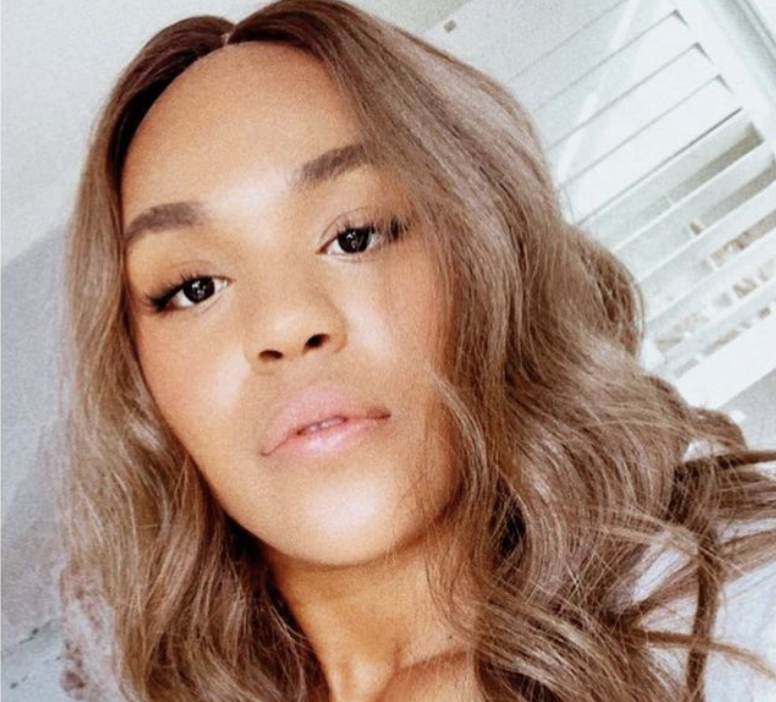
Glitter Co-Founder | Writer | Journalist | Host | Tweet me @zoefowler28

